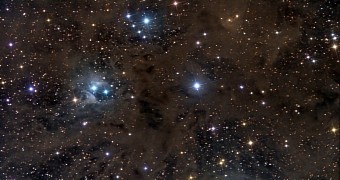Quite often, the stars that comprise our universe explode and spill a whole lot of debris into their surroundings. Of this debris, some makes it all the way to our planet and even passes through its atmosphere.
Now, researchers claim to have successfully recovered such stardust from ocean floors here on Earth. Specifically, the dust was pulled from a sample of our planet's crust and sediments at the bottom of the Pacific.
Interestingly enough, the Australian National University scientists behind this research project say that, contrary to their expectations, they found this stardust to contain a rather small amount of heavy elements.
“We’ve analysed galactic dust from the last 25 million years that has settled on the ocean and found there is much less of the heavy elements such as plutonium and uranium than we expected,” says study leader Anton Wallner.
The specialists explain that their find goes against previous claims that exploding stars otherwise known as supernovae were the ones that produced and delivered heavy elements to Earth eons ago.
Instead, the researchers theorize that plutonium, uranium and other heavy elements are birthed by more explosive events such as the merger of two neutron stars, i.e. some of the densest and smallest stars ever documented.
If this is the case, this could mean that the elements from which life emerged on Earth and that are said to have been produced by exploding stars known as supernovae were too birthed by other, more powerful cosmic events.

 14 DAY TRIAL //
14 DAY TRIAL //